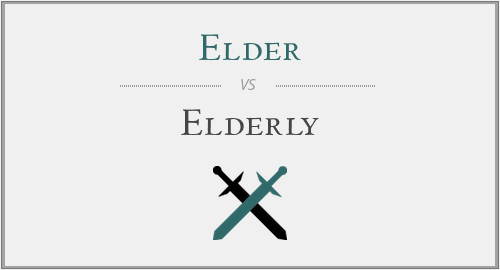Introduction
The words 'Elder' and 'Elderly' are often used to describe individuals of advanced age, but they have nuanced differences that can lead to confusion. In this article, we will explore their distinctions and similarities, focusing on grammar, etymology, and contextual usage, to shed light on their proper usage in English.
Definition and Usage
Elder
'Elder' is a noun or adjective used to describe someone who is older or more senior in age or rank within a group, organization, or community. It can also refer to a person respected for their wisdom and experience. Here are examples of 'Elder' in sentences:
- "The elder members of the family often gather for holidays."
- "She consulted the village elder for advice."
Elderly
'Elderly,' on the other hand, is an adjective that specifically describes individuals who are advanced in age, typically in their later years of life, and may imply a certain frailty or vulnerability associated with aging. Examples of 'Elderly' in sentences include:
- "The elderly couple celebrated their 50th wedding anniversary."
- "The nursing home provides specialized care for the elderly residents."
Grammatical Roles
Grammatically, 'Elder' functions as both a noun and an adjective. As a noun, it can serve as the subject or object of a sentence:

'Elderly,' being an adjective, modifies nouns and typically appears before nouns or in adjective clauses:
- "The elderly woman enjoyed her daily walks in the park."
- "He provides care for the elderly population."
Origins
The words 'Elder' and 'Elderly' have distinct origins:
- 'Elder' has its roots in Old English and Middle English, where it originally meant 'older' or 'more senior.' It is related to the word 'old' and has been in use for centuries.
- 'Elderly' is derived from 'elder' with the addition of the suffix '-ly,' which often transforms adjectives into adverbs. In this case, it transforms 'elder' into an adjective describing the state of being old or advanced in age.
Conclusion
In conclusion, 'Elder' and 'Elderly' are related terms used to describe individuals of advanced age, but they have distinct grammatical roles and convey different nuances. 'Elder' can refer to someone older or more senior in various contexts, while 'Elderly' specifically characterizes individuals in their later years and may imply a degree of frailty. Understanding these differences enhances effective communication and ensures the appropriate usage of these words in English.




Have a discussion about this article with the community:
Report Comment
We're doing our best to make sure our content is useful, accurate and safe.
If by any chance you spot an inappropriate comment while navigating through our website please use this form to let us know, and we'll take care of it shortly.
Attachment
You need to be logged in to favorite.
Log In